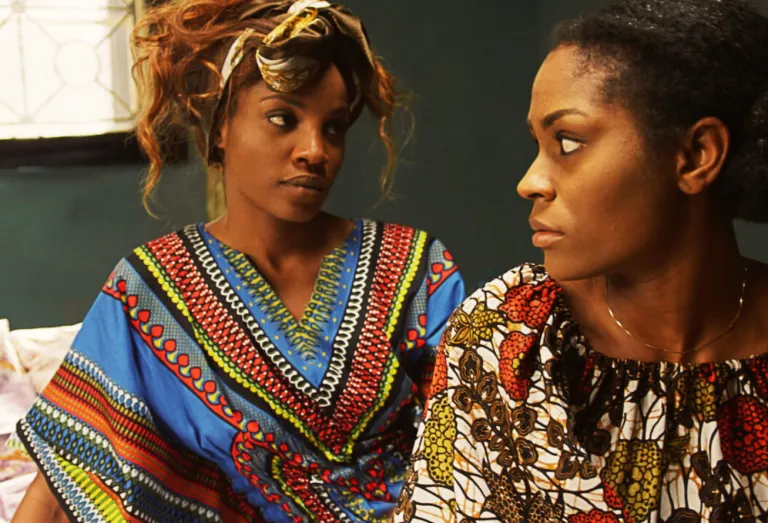Lara and The Beat is the approaching old enough story of the youthful and uncouth beneficiary, Lara Giwa (Seyi Shay) after she and her sister, Dara Giwa (Somkele Iyamah-Idhalama), end up in destitution after their confided in Uncle Tunde (Ridge Ojo) dupes their late dad's organization and forgets about them to dry. But the film is about significantly more than that.
It's not only the narrative of Lara and her beat, as the title will lead you to think. It's likewise the account of Dara and her filmmaking. It's the account of Lara "ostensibly" learning regard. It's the account of Sal (Vector) likewise tracking down his beat. It's a romantic tale and numerous different things in equivalent parts. As a rule, the majority of these accounts would get lost some place in the 140 moment runtime yet not such a great amount here. Directly, the story line is not difficult to follow which merits recognizing, nonetheless, the story never arrives at its full limit. Furthermore, the composing is at fault for that.
For an approaching old enough film, the essayist neglects to boost the crowd's interest in the person's excursion. In a film like this, it is normal that our main protagonist will develop as time passes by from an individual the crowd scarcely prefers into somebody adorable. Truly, by and by, Lara is a superior person. In any case, the improvement is problematic as we essentially go from one scene with her flapping her gums in privilege to a scene around evening time in a room without cooling and afterward a morning where she's out of nowhere seen hand washing garments.
It's reasonable that things should have been surged a piece here. All things considered, between Lara, Dara, Sal, the Giwa Realm, the intrigue, their specialty, their new home and so on, there's a great deal of stories to be sought after. The issue is that asides from directly being cognizant, the essayists stretch themselves too dainty in light of the fact that toward the finish of the movie a significant number of our characters (counting significant characters) actually feel empty and none of those story curves gets a palatable end. The nearest we get to a palatable end is the Lara and Sal curve however even that actually feels a piece surged.
Toward the finish of the film, everyone is cheerful and assembled at a dynamic parlor at night. Lara has now figured out how to make great music (how? the crowd doesn't have the foggiest idea), a famous performer is available, Lara is embracing her companions seriously (the very ones that had thrown her out a couple of scenes back), even the nemesis (FadeKemi) is available and moving. However, similar as the destiny of the sisters' financial balances, the destiny of the Giwa realm is as yet unclear, the connivance between Uncle Tunde and Fadekemi (Uche Jombo) is unsettled, and the subject of where the sisters will rest this evening is likewise still hanging out there… . be that as it may, sure, we should celebrate!
In spite of the deficiencies of the composition, there are numerous parts of the film that keep you locked in. One can contend that there are two stars in this film. The first and most unmistakable being the cinematography and the second being Seyi Shay. The film gets going with such fresh and delectable shots and figures out how to show the magnificence and colorfulness of the Giwas such that movies like "The Bling Lagosians" couldn't exactly get a handle on. In this film, our characters are rich however the camera doesn't circumvent taking trips around their abundance to demonstrate it. It's only tied in to the scenes as the story moves along. And afterward there was the camera development in that club scene that will perhaps take your inhale away.
Lara and the Beat was funneled as the acting introduction of the Nigerian music craftsman, Seyi Shay (Lara Giwa). Watching the straightforwardness with which Seyi encapsulates Lara, it's difficult to accept that she has not been doing this for some time. She is easy in each scene and each sort of scene, in contrast to her co-star, Vector. Whether she is being entitled or she is feeling contrite, whether she's grief stricken or falling head over heels, she claims every scene. She likewise has such an extreme relationship with the camera on the grounds that at whatever point she appears one can't resist the urge to watch her.
If one somehow managed to consider the nollywood fixation on the super well off in the public eye as its very own kind, in this sort Lara and the Beat would be high in the rankings. Essentially it has a bearing and a system however the composing doesn't permit it to scale the wall over to significance.

